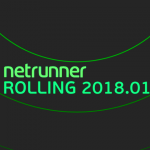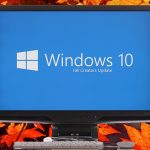Ubuntu Linux 18.04 'Bionic Beaver' Beta 1 now available for download

As a big fan of the GNOME desktop environment, I have long been a Fedora user. After all, that operating system uses GNOME as its primary environment. Since Canonical killed Unity and moved its focus to GNOME, I have a renewed interest in Ubuntu and Ubuntu-based distributions, such as System76's wonderful Pop!_OS. I suspect I am not alone in my feelings.
Today, Ubuntu Linux 18.04 'Bionic Beaver' Beta 1 becomes available for download. Ubuntu 18.04 is significant, as it will be an LTS (Long Term Support) version. As was the case when Unity was the primary DE, GNOME is not available in this beta stage. Instead, there are other flavors from which to choose, such as Kubuntu with KDE Plasma and Xubuntu, which uses Xfce.
Ad-blocker and privacy tool Ghostery goes open source, and has new ways to make money

In an attempt to improve trust and transparency, ad-blocking tool Ghostery has gone open source. It comes after Ghostery was acquired by Cliqz last year and raised a few eyebrows with the business model it put in place.
As well as going open source, Ghostery is also introducing new ways of making money. Rather than selling anonymized user data to third parties, there are now two income streams: Ghostery Insights and Ghostery Rewards. The former is a premium product for which details have not been revealed, the latter an opt-in marketing system.
Google Summer of Code 2018 mentor organizations revealed! Kodi, Fedora, GNOME, LibreOffice, and more

Learning can be fun. Actually, scratch that -- learning should be fun. If a child or adult is bored while studying or being taught a new lesson, something is wrong. True, not all subjects are interesting to all students, so that is why it is imperative to match students with topics that truly interest them. In other words, it can be better to focus on strengths rather than weaknesses.
If a college student is interested in coding, for instance, there is no shortage of curriculums to support that -- depending on the university, of course. The thing is, you can only learn so much from books and lectures. Like anything in life, hands-on experience can trump everything. That's why Google's "Summer of Code" program is so important. If you aren't familiar, it gives university students the opportunity to work on an established open source project. The mentor organizations that are participating aren't third-rate either. For example, students can work with Kodi, GNOME, and LibreOffice, to name a few.
New open source platform offers secure, self-hosted collaboration

As businesses are keen to embrace flexible working and digital transformation, there’s increased focus on collaboration and sharing of information.
But with existing regulations like HIPAA and upcoming ones like GDPR it's important to keep collaboration secure. German company Nextcloud is launching a solution in the form of a self-hosted, open source platform offering end-to-end encryption, video and text chat, and enhanced collaboration.
Linus Torvalds announces Linux kernel 4.15 with a focus on Spectre and Meltdown

After a long wait, the much-anticipated Linux kernel 4.15 is finally here. While these kernel releases are always important, this one is particularly noteworthy. Why? Because it largely focuses on Spectre and Meltdown mitigation. With that said, it is not only about those vulnerabilities, of course.
Linus Torvalds, the inventor of Linux, has been quite critical of Intel’s patches of the aforementioned vulnerabilities, and Microsoft seemingly agrees -- the Windows-maker has disabled one of Intel’s shoddy "fixes" with an emergency update. With kernel 4.15, Torvalds is quick to say that the work on Spectre and Meltdown is far from finished.
Netrunner Rolling 2018.01 KDE-focused Manjaro Linux-based operating system is here

There are many Linux-based operating systems out there, but not many I would call great. My absolute favorite is Fedora, as I am a GNOME fan that likes using a distro that focuses on truly free and open source software. Not to mention, it quickly gets many updated packages while also retaining stability. So yeah, Fedora is great.
Another great Linux distro? Netrunner Rolling. This Manjaro-based operating system uses KDE Plasma for its desktop environment. As the name implies, it follows a rolling release, meaning it is constantly being updated to fresh packages -- no major upgrades needed. It has a lot of polish and many quality pre-installed programs which indicates the developers truly care about the overall user experience. Quite frankly, it reminds me of Windows 7 -- in a good way -- which also makes it a wise choice for those unhappy with the much-maligned Windows 10. Today, Netrunner Rolling gets its first ISO refresh of 2018.
Slack now available as a Snap for Linux

At the end of last year, the Linux desktop scored a huge win when Spotify became available as a Snap. If you aren't familiar with Snaps, please know that they are essentially software packages designed to run as a container on any Linux distro. Not only does it make installing software packages easier for users, but it makes things simpler for developers too. Ultimately, Snaps have the potential to solve the big fragmentation problem in the Linux desktop community.
Today, yet another wildly popular program gets the Snap treatment, and quite frankly, it is arguably more significant than Spotify. What is it? Slack! Yes, Canonical announces that the ubiquitous communication app can be installed as a Snap. True, Slack was already available on the Linux desktop, but this makes installing it and keeping it updated much easier.
Edward Snowden's Haven app turns a smartphone into a security device

The name Edward Snowden will always be associated with the NSA, but the man has fingers in many other pies. His latest venture is an app called Haven which can turn a smartphone into a security device that keeps an eye on your possessions.
Haven is an Android app, currently in beta, designed to be installed on an "extra" phone that you wouldn't mind losing. Placed with your belongings, it uses a phone's sensors -- microphone, camera, gyroscope, accelerometer, and so on -- to detect and record theft and tampering.
Kodi 18 'Leia' 64-bit for Windows is finally ready to replace the 32-bit version

There is a lot of software in the world, and much of it is terrible. It is rare that a truly great program comes along that actually disrupts things. When that software is open source, it is even more remarkable. That is why Kodi is such an impressive program. The open source project has impacted the way much of the world consumes music, movies, TV and more -- both legitimately obtained media and pirated content.
Earlier this year, we shared with you that a pre-release version of Kodi 18 "Leia" 64-bit for Windows was available. There was a big catch, however -- it was not up to par with its 32-bit brother. And so, many people just stuck with the 32-bit version, because, well... why not? It is finally time to make the jump to the 64-bit variant, however, as according to the Kodi team, it is now identical to the 32-bit version from a feature perspective.
Christmas comes early! LibreELEC (Krypton) 8.2.2 Kodi Linux distro is here

Christmas is almost here, and I don't know about y'all, but I am thrilled. While I am looking forward to spending time with family and thinking about the birth of Jesus, I am not ashamed to say I am excited about presents too!
Today, Christmas comes a bit early thanks to a new LibreELEC (Krypton) release. Version 8.2.2 of the Kodi-focused Linux-based operating system is being called a minor release, but it is still a very special gift for users of the media center. After all, version 8.2.1 was previously called the final Krypton version, but as we now know, it wasn't.
Windows 10 gets native OpenSSH client and server

It's quite interesting to see just how far Microsoft has come since Satya Nadella became CEO. The company has gotten out of its comfort zone and made its products more appealing to a wider range of customers, embracing rival platforms and the open-source community. Having Visual Studio on Macs and tons of apps on Android and iOS is something that would have been unheard of only a few years ago.
The same goes for offering a subsystem for Linux or OpenSSH support on Windows 10. That last bit may not excite everyone, but it is especially useful for those who want to log in remotely on Linux devices -- which would have normally required third-party tools like PuTTY. Microsoft is not stopping there though, as it's taking things to the next level by adding a native OpenSSH client and server to Windows 10.
Avast makes 'RetDec' machine-code decompiler open source on GitHub

Open source is the future of computing. Don't believe me? Three of the most important technology companies -- Microsoft, Apple, and Google -- not only license open source software, but they contribute to open source projects too. While closed source will likely never go away, it is becoming less important.
Today, popular anti-virus and security company, Avast, announces that it too is contributing to the open source community. You see, it is releasing the code for its machine-code decompiler on GitHub. Called "RetDec," the decompiler had been under development since 2011, originally by AVG -- a company Avast bought in 2016.
Puppylinux 7.5 'Xenialpup' is ready to breathe new life into your aging computer -- download it now!

Two of my favorite things are dogs and Linux. No, really. When I am not having fun with my Linux box, I am playing or cuddling with my dog. And so, whenever there is a way to mix these things, I am all for it. That's probably why Puppylinux is so endearing to me. Make no mistake, however, the operating system is much more than a cute name. Actually, it is a solid distro for breathing new life into ancient computers.
Today, Puppylinux 7.5 sees release. Named "Xenialpup," the ISO is an insanely small 330MB. Well, that is a diminutive operating system by today's standards at least. Heck, you can even burn it to a CD rather than a DVD -- very useful for an old PC without a DVD drive. You don't need to install it to the hard drive if you don't want -- it can be used as a live environment from optical disk, memory card, or flash drive. Despite its focus on being lightweight, it is still very capable too.
You can win cool prizes just for trying System76's Ubuntu-based 'Pop!_OS' Linux distro!

There is this stereotype that Linux is not conducive to creativity, and I want you to know it is totally false. True, some photographers, videographers, and other types of artists may opt for a Mac or Windows machine, but they can be just as creative with open source and Linux. Not to mention, if you are a maker, engineer, or other type of creator, Linux is probably your best option.
The folks over at System76 have been preaching about the benefits of Linux and open source for many years, and its excellent Linux-powered computers are used by many creative professionals -- including Pixar. This year, however, the computer seller decided to take things a step further by creating its own Ubuntu-based operating system. Called "Pop!_OS," it aims to inspire its users. The company wants to get more people using the distro, so today, it announces a really cool new contest. By simply trying the operating system and sharing your experience with System76, you could win some sweet prizes, including a trip to the company's headquarters in Denver, CO!
New Kubernetes certification program helps deliver consistency in the cloud

Over the last three years open source container platform, Kubernetes has been adopted by a diverse community of providers including some of the biggest names in the cloud.
Now the Cloud Native Computing Foundation (CNCF) is launching a Kubernetes Software Conformance Certification program, which ensures Certified Kubernetes products deliver consistency and portability.
Recent Headlines
BetaNews, your source for breaking tech news, reviews, and in-depth reporting since 1998.
© 1998-2025 BetaNews, Inc. All Rights Reserved. About Us - Privacy Policy - Cookie Policy - Sitemap.